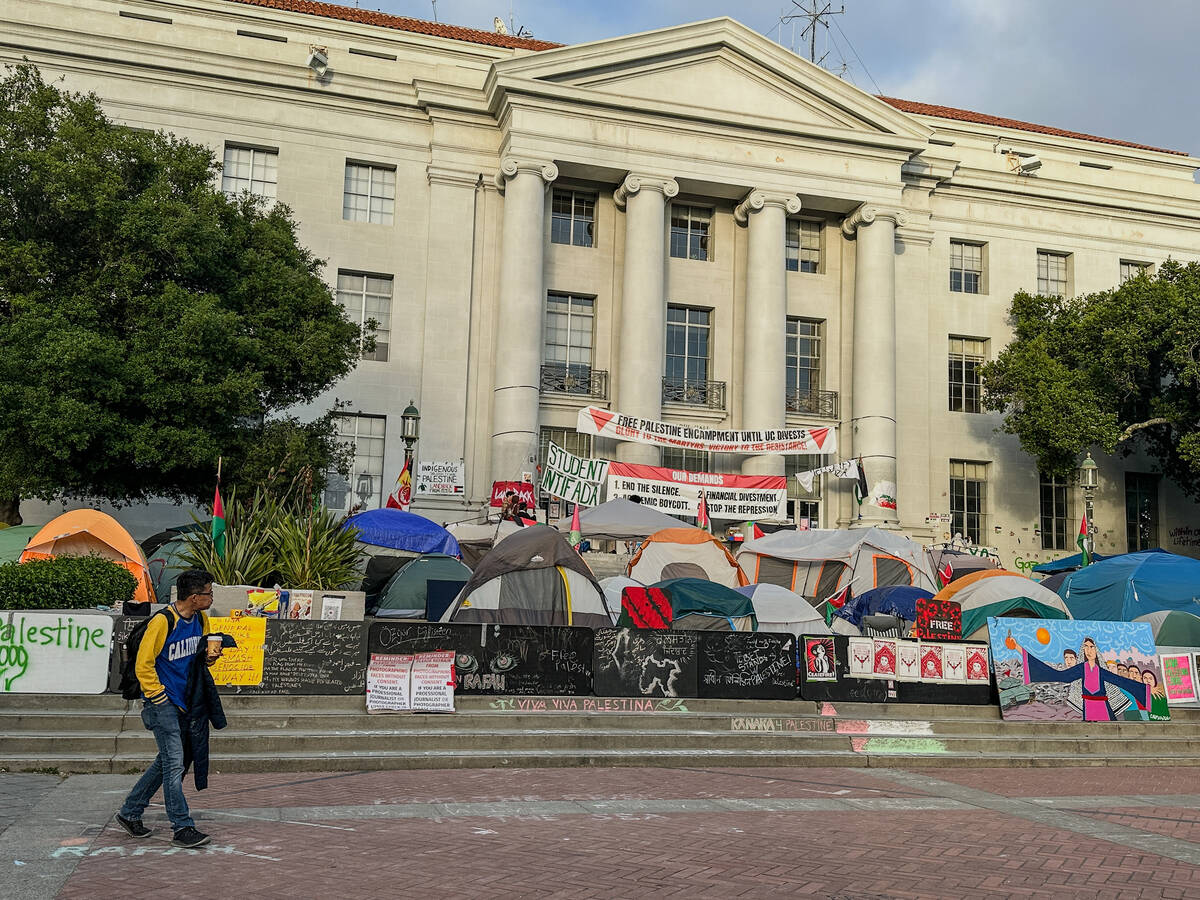BERKELEY, Calif. — A group of pro-Palestinian demonstrators took over UC Berkeley’s Anna Head Alumnae Hall on Wednesday, just a day after a large encampment in Sproul Plaza was taken down following an agreement between administrators and demonstrators.
“This is an active crime scene,” said UC Berkeley spokesperson Dan Mogulof. “They’re vandalizing an unsafe, fire-damaged building.”
News that protesters were occupying the abandoned, fenced-off structure on Haste Street near Telegraph Avenue, was first shared on the Instagram account, People’s Park Berkeley.
The building sits just across from the park, which was established 55 years ago to the day and has been the center of controversy. While the university has sought to develop the site into student housing, protesters have advocated for retaining the lot as open space.
Wednesday’s protest also comes on the 76th anniversary of the first Nakba, an Arabic word meaning catastrophe and used as a reference to the forced disposition of about 700,000 Palestinians during the 1948 Arab-Israeli war prompted by the creation of Israel.
For months, UC Berkeley students and faculty had been protesting Israel and its military response to a Hamas-led terrorist attack on Oct. 7. An encampment established April 22 was cleared on Tuesday and Wednesday, following negotiations between a pro-Palestinian coalition and administrators. A demonstrator occupying the vacant building could be heard in the Instagram post calling the university’s promises “empty.”
“Since the first Nakba, hundreds of thousands of Palestinians have been forcibly exiled from their ancestorial homes,” a protester could be heard saying on the video. “Palestine to this day continues to face ongoing colonial settler violence at the hands of the Israeli occupation.”
Less than 24 hours after UC Berkeley administrators and protesters concluded negotiations, a small clean-up crew dressed in white jumpsuits was busy scrubbing away the remnants of a pro-Palestine encampment that ballooned to dozens of tents over the past few weeks and seemingly disappeared overnight.
Demonstrators began taking down most of the camp around Sproul Plaza on Tuesday afternoon, and by the next morning, a protester was packing up the last tent.
At San Jose State University and the University of San Francisco, meanwhile, encampments remained intact on Wednesday despite deadlines to pack up on Tuesday. Tents at a San Francisco State University encampment started coming down Wednesday, a day after demonstrators and administrators also reached an agreement.
Protesters first took over the Savio Steps of Sproul Hall on April 22, growing their encampment to more than 150 tents, with a list of demands.
They included that the university disavow the war in Gaza and call for a permanent and immediate cease-fire, a divestment of all financial holdings supporting Israel’s military operations, an end to academic partnerships with Israeli universities, and greater support of Palestinian students, including the establishment of a Palestinian studies program.
As of Tuesday, demonstrators agreed to disband their encampment in exchange for a campus commitment to two points, according to a public letter sent from UC Berkeley Chancellor Carol T. Christ to the encampment.
Administrators said a full divestment was off the table, echoing comments made by UC Regents during a meeting Tuesday, but agreed to expedite the UC Berkeley Foundation’s process for reviewing concerns regarding investments in weapons manufacturing, mass incarceration and surveillance industries. If the foundation signals support for divestment, the university will establish and convene a divestment task force by June 30.
The task force will be expected to issue a report on industry-specific divestments.
If divestment is not supported, a task force of students, faculty and staff will be established by July 14 to develop industry-specific or company-specific divestment recommendations to be presented to the foundation chair.
Secondly, administrators agreed to review existing complaints regarding anti-Palestinian discrimination at Israeli universities and to establish a formal transparent process for reviewing similar complaints by the end of this year. Administrators also agreed to pursue termination of partnerships with programs that violate discrimination policies if no other remedies are available, according to a public letter sent from Christ to the encampment.

